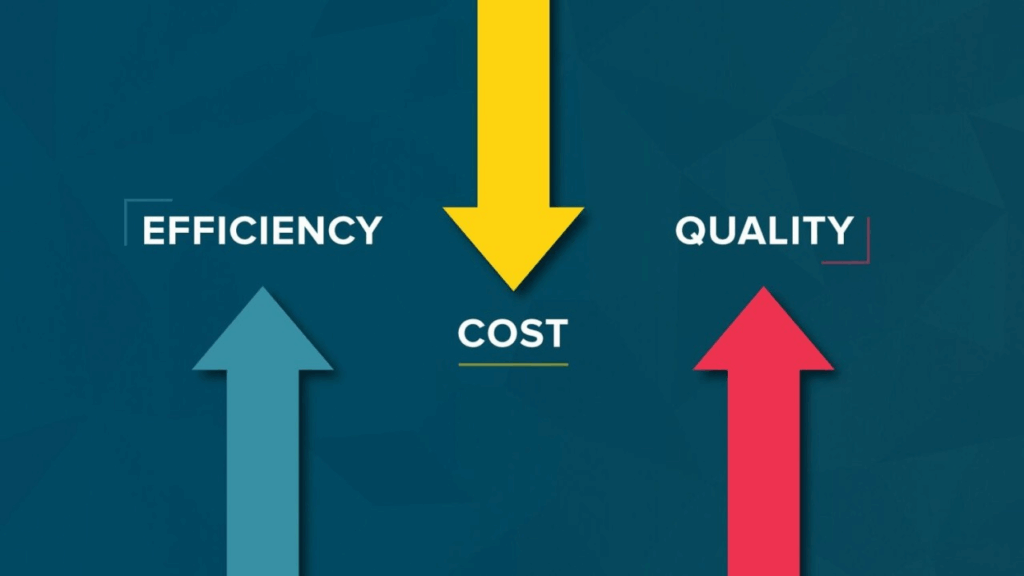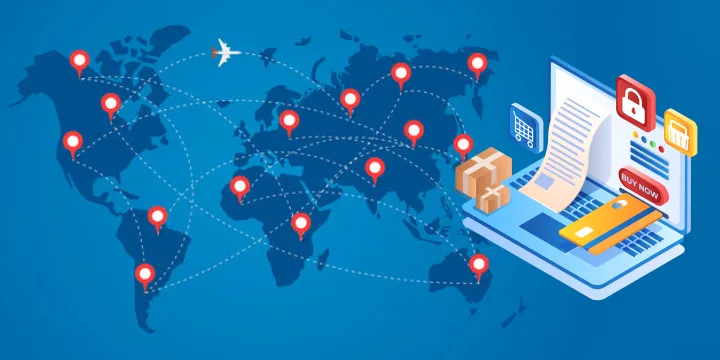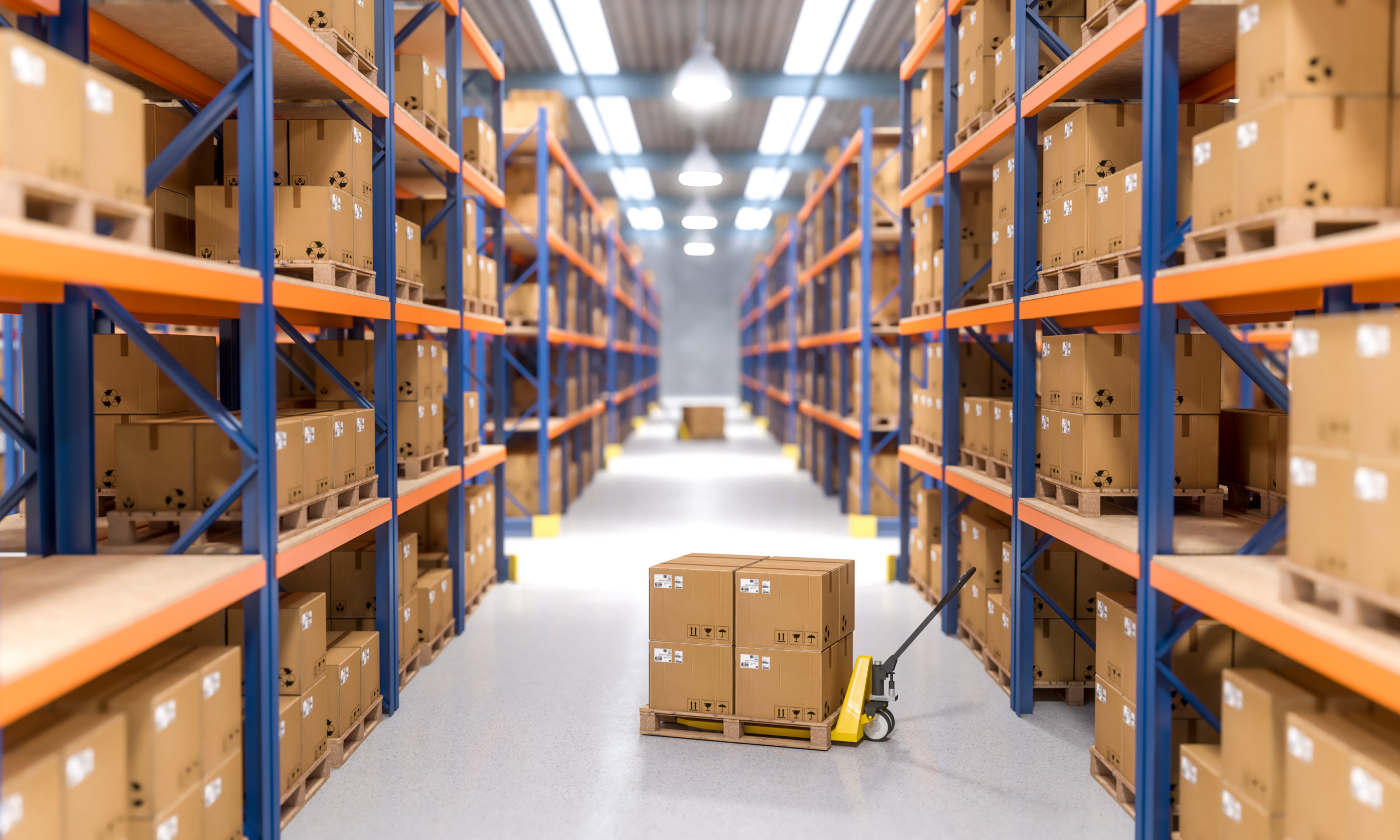Comment les petites entreprises s'internationalisent rapidement grâce à l'intégration de l'expédition
L'expansion mondiale n'est plus réservée aux grandes entreprises. En effet, l'expansion mondiale n'est plus l'apanage des grandes entreprises. Les colis postaux intégration de l'expéditionGrâce à Postalparcel, les petites entreprises disposent désormais des outils nécessaires pour expédier leurs produits au-delà des frontières avec rapidité, précision et facilité. En connectant leurs boutiques en ligne à des prestataires logistiques internationaux par l'intermédiaire de Postalparcel, elles peuvent minimiser les erreurs d'expédition, réduire les retards et accroître l'efficacité de leurs opérations. Cet article explique comment l'intégration de l'expédition permet aux petites entreprises de se développer à l'international et de rationaliser leurs processus logistiques.

Qu'est-ce que l'intégration des services d'expédition ?
Intégration de l'expédition est la connexion entre les plates-formes de commerce électronique et les différents transporteurs maritimes, ce qui permet des processus automatiques tels que
- Comparaison des taux en temps réel: Comparez instantanément les frais d'expédition de plusieurs transporteurs.
- Génération de labels: Générer automatiquement des étiquettes d'expédition pour les commandes.
- Suivi des mises à jour: Fournir aux clients suivi en temps réel des informations.
- Gestion des retours: Rationaliser le processus de retour pour les entreprises et les clients.
En automatisant ces processus, les petites entreprises gagnent du temps, réduisent les erreurs et offrent une expérience client plus fluide.
Pourquoi l'intégration de l'expédition est-elle cruciale pour les petites entreprises ?
1. Accès aux marchés mondiaux
L'intégration de l'expédition permet aux petites entreprises d'atteindre plus facilement leurs clients internationaux. Grâce à l'intégration de l'expédition, les entreprises peuvent :
- Offrir un service d'expédition international avec facilité.
- Automatiser documentation douanière et de rester en conformité avec les réglementations internationales en matière de transport maritime.
- Fournir des estimations de livraison précises à des clients du monde entier.
Cela permet aux petites entreprises de pénétrer des marchés dont l'accès était auparavant difficile ou coûteux.
2. Rapport coût-efficacité

L'intégration de l'expédition permet aux petites entreprises de réduire les frais d'expédition :
- Accès à des tarifs d'expédition réduits: Les plates-formes d'intégration permettent souvent d'obtenir des remises sur les envois en nombre auprès des principaux transporteurs.
- Optimisation des itinéraires de transport: Sélectionne automatiquement le transporteur le plus rentable en fonction de la destination et du délai de livraison.
- Réduction des coûts opérationnels: L'automatisation des tâches d'expédition élimine le travail manuel et minimise les erreurs.
L'intégration de l'expédition permet aux entreprises de gérer les livraisons mondiales sans avoir à supporter les coûts élevés généralement associés à l'expédition internationale.
3. Amélioration de l'expérience des clients
L'intégration de l'expédition permet aux petites entreprises de répondre aux attentes élevées des consommateurs d'aujourd'hui :
- Mises à jour du suivi en temps réel tenir les clients informés de leurs commandes.
- Transparent frais d'expédition s'assurer qu'il n'y a pas de frais cachés.
- Des retours sans faille faciliter le renvoi des produits par les clients en cas de besoin.
Répondre à ces attentes permet de fidéliser la clientèle, de renouveler les achats et d'obtenir des avis positifs.
Comment l'intégration des services d'expédition aide-t-elle les petites entreprises à se développer ?
L'intégration des expéditions révolutionne la logistique en automatisant les processus fastidieux. Traditionnellement, la gestion des expéditions internationales était lente, sujette aux erreurs et coûteuse. Aujourd'hui, grâce à l'intégration des expéditions, les petites entreprises peuvent :
- Automatiser l'ensemble du processus d'expédition: De la création des étiquettes aux mises à jour du suivi, tout est fait automatiquement.
- Éliminer les erreurs humaines: La saisie manuelle des données d'expédition est remplacée par des données automatisées, ce qui réduit les erreurs.
- Augmenter la vitesse opérationnelle: L'intégration de l'expédition garantit un traitement rapide et efficace des envois, ce qui se traduit par des délais de livraison plus courts.

1. Expédition mondiale simplifiée
Par le passé, les petites entreprises avaient du mal à gérer les envois de plusieurs transporteurs et les systèmes de suivi. Désormais, les entreprises peuvent intégrer toutes les tâches d'expédition en un seul processus rationalisé. Avec la bonne intégration de l'expédition, les entreprises peuvent :
- Expédition facile vers 100+ pays.
- Poignée toutes les tâches liées à l'expédition à partir d'une interface.
- Sélectionner automatiquement le transporteur le plus fiable et le plus rentable pour chaque commande.
Cela facilite grandement la gestion des expéditions internationales, même pour les entreprises qui commencent à se développer à l'international.
2. Des livraisons plus rapides et plus fiables
Le respect des délais de livraison est l'un des plus grands défis de l'expédition internationale. L'intégration de l'expédition permet aux entreprises d'offrir des estimations de livraison précises et minimiser les retards. En sélectionnant automatiquement le meilleur coursier pour chaque envoi, les entreprises peuvent garantir des livraisons plus rapides et plus fiables, ce qui améliore la satisfaction des clients.
Comment Postalparcel soutient les petites entreprises avec l'intégration de l'expédition
Colis postal offre une plate-forme complète d'intégration de l'expédition, spécialement conçue pour les petites et moyennes entreprises (PME). En utilisant Colis postalLes petites entreprises peuvent facilement connecter leurs plates-formes de commerce électronique aux réseaux logistiques mondiaux.

Principaux avantages de l'intégration des services d'expédition de Postalparcel :
- Portée mondiale: Les petites entreprises peuvent facilement expédier leurs produits dans plus de 100 pays, éliminant ainsi les obstacles à l'expansion internationale.
- Automatisation: Générer des étiquettes d'expédition, suivre les commandes et gérer les retours automatiquement grâce au système intégré de Postalparcel.
- Économies de coûts: Accédez à des tarifs d'expédition réduits et sélectionnez les transporteurs les plus rentables en fonction des besoins de chaque envoi.
- Transparence: Fournir aux clients des informations de suivi en temps réel, améliorant ainsi la confiance et la satisfaction.
- Retours sans rupture: Gérer les retours sans effort, grâce à des processus automatisés qui facilitent la gestion des retours.
Colis postal simplifie l'expédition internationale en s'occupant de tous les aspects complexes, ce qui permet aux petites entreprises de se concentrer sur la croissance et le service à la clientèle.
Quels problèmes d'expédition l'intégration permet-elle de résoudre ?
1. Mises à jour de l'état des commandes retardées
Sans l'intégration de l'expédition, les entreprises ont souvent du mal à fournir des mises à jour précises et opportunes à leurs clients. L'intégration de l'expédition permet des mises à jour de suivi en temps réel aux entreprises et aux clients, en tenant tout le monde informé et en réduisant le nombre de demandes de renseignements sur l'état d'avancement des commandes.
2. Des délais de livraison incohérents
L'intégration de l'expédition résout le problème de l'incohérence délais de livraison. En sélectionnant automatiquement le meilleur transporteur pour chaque commande, les entreprises peuvent fournir des estimations de livraison fiables et d'éviter les retards inutiles.
3. Frais d'expédition élevés

L'expédition internationale peut s'avérer coûteuse pour les petites entreprises. L'intégration de l'expédition réduit les coûts en fournissant :
- Taux actualisés avec les partenaires maritimes.
- Optimisation des itinéraires d'expédition qui sélectionnent les transporteurs les plus rentables.
En tirant parti de l'intégration de l'expédition, les petites entreprises peuvent réduire considérablement leurs frais d'expédition tout en conservant un service rapide et fiable.
Quelles sont les prochaines étapes de l'intégration des services d'expédition ?
L'intégration du transport maritime est en constante évolution, avec de nouvelles technologies et innovations qui amélioreront l'efficacité du transport maritime mondial. Les tendances futures de l'intégration du transport maritime sont les suivantes
- Logistique alimentée par l'IA: Les algorithmes prédictifs aideront les entreprises à optimiser les itinéraires d'expédition, à réduire les retards et à réaliser des économies.
- Blockchain: L'amélioration de la transparence et de la sécurité grâce à la technologie blockchain rendra le transport maritime mondial plus fiable.
- Durabilité: Les entreprises s'efforçant de réduire leur empreinte carbone, des options d'expédition plus respectueuses de l'environnement verront le jour.
En restant à l'avant-garde de ces tendances, les petites entreprises conserveront un avantage concurrentiel sur le marché mondial.
Conclusion
L'intégration de l'expédition est un outil essentiel pour les petites entreprises qui souhaitent se développer à l'échelle mondiale. En utilisant Colis postal pour l'intégration de l'expédition, les entreprises peuvent facilement se connecter aux réseaux logistiques mondiaux, automatiser les processus et offrir une meilleure expérience à leurs clients.
Avec la bonne solution d'intégration de l'expédition, les petites entreprises peuvent surmonter les défis de l'expédition internationale et être compétitives à l'échelle mondiale, en offrant des livraisons plus rapides et plus fiables sans les problèmes logistiques.
Commencez votre voyage vers le succès mondial avec Colis postal-le moyen le plus simple de gérer vos besoins en matière d'expédition internationale. Pour en savoir plus Colis postal.
Aperçu de l'industrie
nouvelles via la boîte de réception
Nulla turp dis cursus. Integer liberos euismod pretium faucibua








